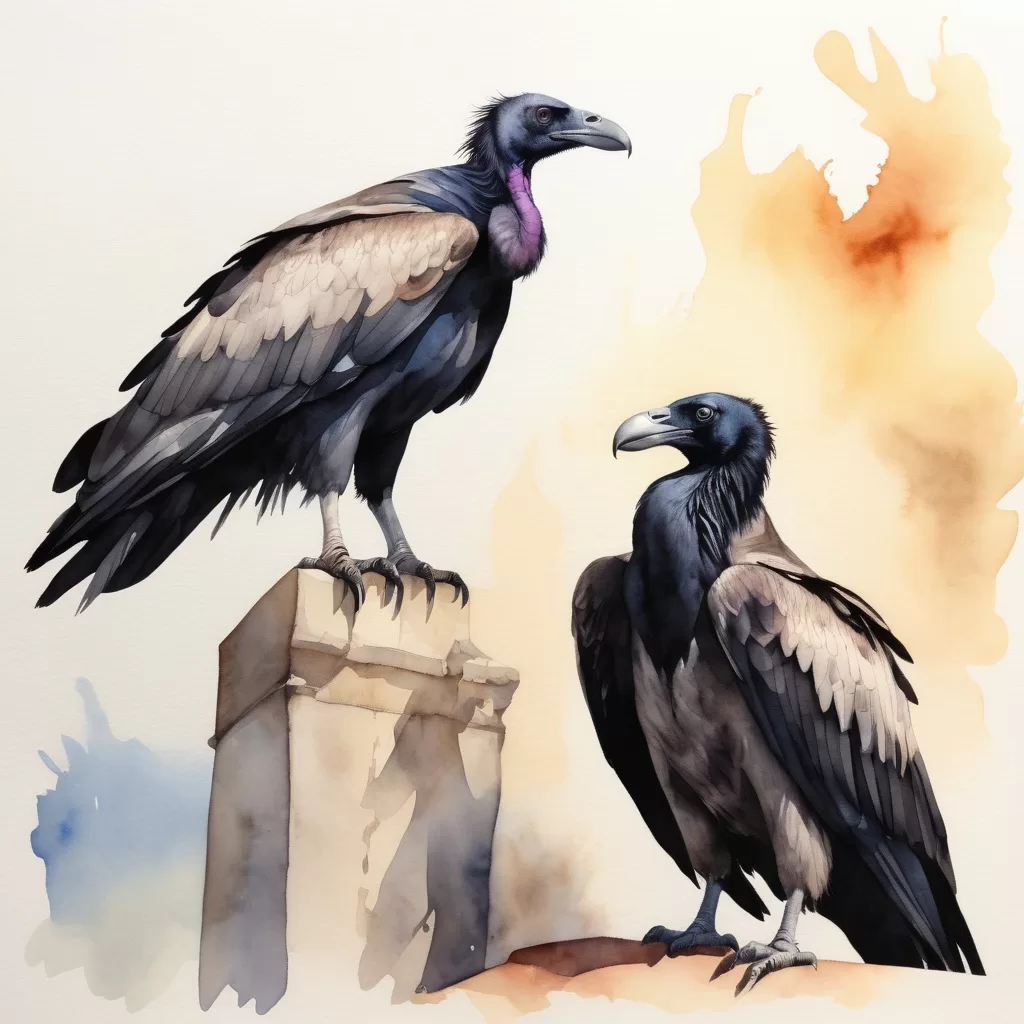Ecological Importance of Avian Scavengers
Avian scavengers provide essential ecosystem services that contribute significantly to organic waste reduction, human health, and economic value. Their activities help maintain ecological balance and promote overall human wellbeing.
Ecosystem Services and Organic Waste Reduction
Avian scavengers, such as vultures and crows, play a vital role in the ecosystem by consuming dead animals and organic waste. This behavior helps facilitate organic material removal, which contributes to nutrient cycling within ecosystems. By breaking down carcasses, these birds reduce the amount of decomposing matter, thus preventing the buildup of waste that could lead to negative environmental impacts.
In addition, scavengers aid in the removal of food waste generated by human activities. Their ability to consume large quantities of organic matter helps mitigate the effects of landfill overflow and promotes a cleaner environment. Scavenger birds are thus integral to maintaining ecosystem services that support sustainability.
Impact on Human Health and Disease Control
The presence of avian scavengers is crucial for human health, as they help control disease transmission. By feeding on carrion, these birds limit the spread of harmful pathogens that could arise from decomposing animals. This natural regulation serves to minimize the risk of disease outbreaks in both wildlife and human populations.
Moreover, scavengers act as indicators of ecosystem health. A decline in scavenger populations can signal ecological imbalances or environmental degradation, which can impact human wellbeing. Therefore, protecting these birds is essential not only for biodiversity but also for safeguarding public health.
Economic Significance and Material Removal
The economic value of avian scavengers lies in their ability to perform material removal services. Various studies estimate that birds, particularly vultures, contribute significantly to the annual organic material removal process. This service ultimately reduces the costs associated with waste management and environmental cleanup.
In agricultural contexts, the presence of scavengers can decrease losses associated with waste buildup, promoting healthier livestock and reducing disease prevalence among animals. The conservation of scavenger populations, therefore, supports economic sustainability while fostering health in agricultural practices.
Species-Specific Roles in Scavenging
Different scavenging bird species play unique and critical roles in maintaining ecosystem health. Understanding these roles helps to appreciate their contribution to waste management and disease control.
Turkey Vultures: Obligate Scavengers at a Continental Scale
Turkey vultures (Cathartes aura) are prime examples of obligate scavengers. These birds primarily consume carrion, playing an essential role in cleaning up dead animals across vast landscapes. Their keen sense of smell allows them to locate decaying matter from significant distances.
They efficiently recycle nutrients back into the ecosystem, which benefits plant and animal life. Studies indicate that a single turkey vulture can consume several pounds of carrion each day. This extensive food intake is necessary for their energy needs, especially during breeding seasons.
Population surveys highlight the importance of turkey vultures in various regions. Their scavenging helps control the spread of diseases that can arise from decomposing animals. As such, they are vital for maintaining ecological balance.
Migratory Patterns and Population Health
Migratory patterns of scavenging birds, including turkey vultures, significantly affect their population health. These birds travel thousands of miles between breeding and wintering areas, following food availability and climate conditions. The movement data collected in various studies provides insight into these migration routes.
Understanding migratory behaviors helps conservationists identify critical habitats for their survival. Migratory populations rely heavily on the availability of carrion during their travels. Fluctuations in their food sources can lead to detrimental impacts on their populations.
Monitoring these patterns through research enhances knowledge about demographic trends. This information is crucial for preserving the health of scavenging species, ensuring they continue their essential ecological roles.
Challenges and Strategies for Conservation
Conservation of scavenger birds faces numerous challenges mainly stemming from human activity and environmental changes. Effective strategies are essential to mitigate conflicts and ensure the sustainability of these vital species.
Mitigating Human-Wildlife Conflicts and Urban Waste
Human-wildlife conflicts often arise when scavenger birds, such as vultures and crows, are drawn to urban areas due to abundant food sources, like urban solid waste. This interaction can lead to negative perceptions of scavengers, fostering attempts to control their populations.
To address this, cities can implement waste management policies that minimize food availability for these birds. For instance, promoting proper disposal methods and reducing food waste can help deter scavengers from urban environments.
Additionally, community education on the ecological role of these birds can foster coexistence. By illustrating their economic relevance in pest control and disease regulation, communities may better appreciate their functional significance.
Conservation Efforts for Sustaining Scavenger Species
Multiple conservation efforts focus on habitat preservation and the provision of safe foraging areas for migratory avian scavengers. Protecting nesting sites and foraging habitats is crucial for sustaining their populations.
Organizations endeavor to quantify ecosystem services provided by scavenger birds, such as carcass removal and disease control. These efforts are significant as they highlight the ecological value of these birds, encouraging public and governmental support.
Legislation, like protected areas and conservation grants, strengthens these initiatives. Collaborations between governments, NGOs, and local communities can enhance these conservation measures, promoting biodiversity while addressing challenges posed by urban development and agricultural practices.
Share this content:

Post Comment
You must be logged in to post a comment.